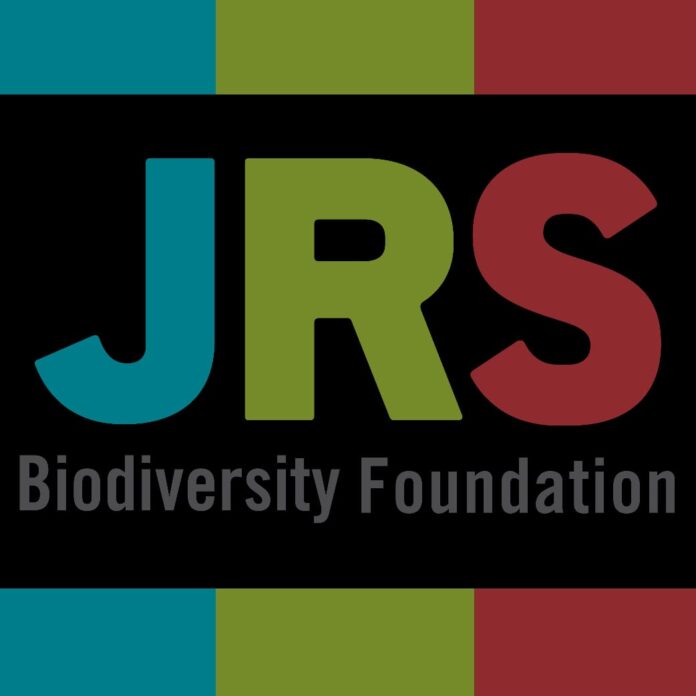As part of its efforts to help address climate change and problems of biodiversity in Ghana, Conservation Alliance International in partnership with A Rocha Ghana, CSIR-Plant Genetics Resources Research Institute (PGRRI), Ministry of Environment, Science, Technology and Innovation (MESTI), South African National Biodiversity Institute (SANBI) with funding from JRS Biodiversity Foundation through the GBIF Biodiversity Information for Development (BID) Programme have organized a four-day workshop to discuss pathways towards successful completion of the BID-AF2020-029-USE project.
The BID-AF2020-029-USE project titled ‘Integrating ecosystem and biodiversity data’ is to assist national development planning to integrate off-reserve, Other Effective Area-Based Conservation Measures (OECMs) and Key Biodiversity Areas (KBAs) into government decision-making processes.
The workshop brought in more than 30 key stakeholders from government agencies, academia, and the private sector, to discuss access to Biodiversity information and why it’s important now for Ghana.
It provided the opportunity for key stakeholders and partners to integrate off-reserve, Other Effective Area-Based Conservation Measures (OECMs), and Key Biodiversity Areas (KBAs) into government decision-making processes came to a successful closure despite COVID-19 challenges during two years of implementation, and this was disclosed at the Project Closure Workshop in Accra.
Speaking at the workshop, the Project Coordinator, Dr. Yaw Osei-Owusu mentioned that the project achieved about 90% success on deliverables and promised to complete the remaining ones as part of post-project activities.
“The project mobilized more than 30,000 records on occurrence and checklist data from off-reserve areas on priority endemics, economically important and threatened species, alien plants, and lesser known taxa of flora and fauna.
“The project also developed information products including distribution maps of invasive species, crop wild relatives (CWRs), and herpetofauna.
“Other products included maps of Other Effective Area-based Conservation Measures (OECMs) through KBA assessment and infographics of threatened species within OECMs and other off-reserve areas and data papers on invasive species and CWRs.
“These information products have been integrated into the draft National Biodiversity Policy (NBP) and the National Invasive Species Strategy and Action Plan (NISSAP)” he added.
The Policy Planning Officer at the Ministry of Environment, Science, Technology and Innovation (MESTI), Mrs. Emellyne Wright-Hanson commended JRS Biodiversity Foundation and GBIF for providing both financial and technical support for the project at a critical time when biodiversity data is needed for reporting on geospatial biodiversity indicators under the Sustainable Development Framework, the post-2020 CBD Biodiversity Framework and reporting on SDG indicator 15.1.2.
She promised that the Ministry will follow up on the parliamentary approval of the NBP and also support outstanding activities including the publication of the developed data papers and baseline studies to identify potential KBAs in off-reserve areas.
At an earlier Technical Group workshop held in March 2023 in Koforidua in the Eastern Region of Ghana, the Coordinator of Biodiversity Information Management Forum (BIMF), Ghana, explained that this project has not only enhanced the capacity of members on bioinformatics but also strengthened the forum to publish more data on GBIF-mediated platforms in the future.
“BIMF brings together key data holders and end-users from both state and non-state institutions in Ghana including the media on bioinformatics.
“I want to thank JRS and GBIF for supporting biodiversity data and information for development efforts in Ghana for more than 5 years through its Biodiversity Information for Development (BID) program.
“Biodiversity Information for Development (BID) is a multi-year programme funded by the European Union and led by GBIF with the aim of enhancing capacity for effective mobilization and use of biodiversity data in research and policy in the ‘ACP’ nations of sub-Saharan Africa, the Caribbean and the Pacific.
“Funding from the programme’s first phase has supported capacity enhancement activities and projects to mobilize biodiversity data and strengthened national and regional biodiversity information facilities in these regions.
“it impacts to date have focused on data that support the regions’ policy needs, particularly in connection with protected areas, threatened species, and invasive alien species,” he said.








